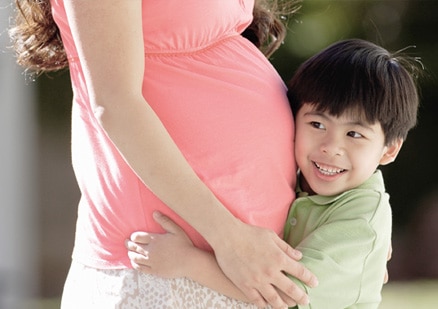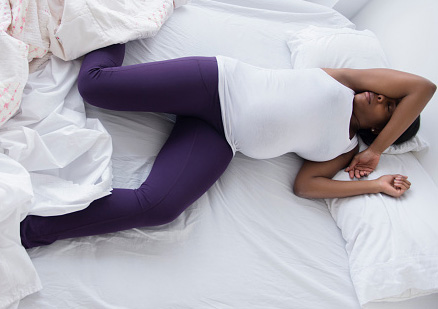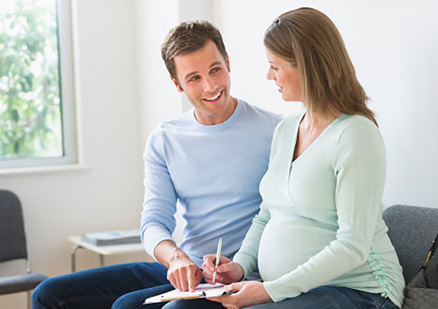Counting kicks

Few pregnancy milestones are as exciting as feeling your baby’s first kick. While you may not recognize that funny feeling at first, when you do, those kicks sure can put a smile on your face.
When will I start feeling the baby kick?
You may start feeling your baby move between 18 and 22 weeks of pregnancy, but you won't usually feel kicks until 22 to 26 weeks. Around 30 to 32 weeks, you'll typically feel more kicking. By 40 weeks, your baby has grown larger and may have less room to move around, so their movements may feel smaller than before.
When you reach your third trimester, we recommend counting your baby’s kicks. Tracking your little one’s activity can tell us a lot about his or her health. If we give you a kick count card, fill it out daily and bring it to your prenatal visits. If we don’t give you one, you can download a kick count card here.
How to count your baby's kicks
The best time to count kicks is whenever your baby is typically the most active. Do you feel your little one moving around a lot at a certain time each day? If your baby doesn’t have a predictable pattern, after dinner is a good time to try.
To fill out your card, follow these steps:
- Lie down on your side or relax in a comfortable chair.
- Make a note of the time.
- Pay attention only to your baby’s movements. Count any movement that you can feel (except hiccups). Any twist, kick, or turn is 1 movement.
- After you count 10 movements, check the time and record on the card how many minutes it took
If your baby does not kick or move within 1 hour
Do some or all of these things and then try again:
- Eat or drink something, like fruit or juice.
- Lie on your left side.
- Walk around for 5 minutes.
When to call us
Call us right away if your baby:
- Has not moved 10 times by the end of 2 hours
- Has a sudden decrease in normal activity
If you have a home fetal doppler and can hear the heartbeat, you should still call us if you experience these changes in baby movement.
If we think something might be wrong, we’ll give you a simple test to make sure everything is OK.


